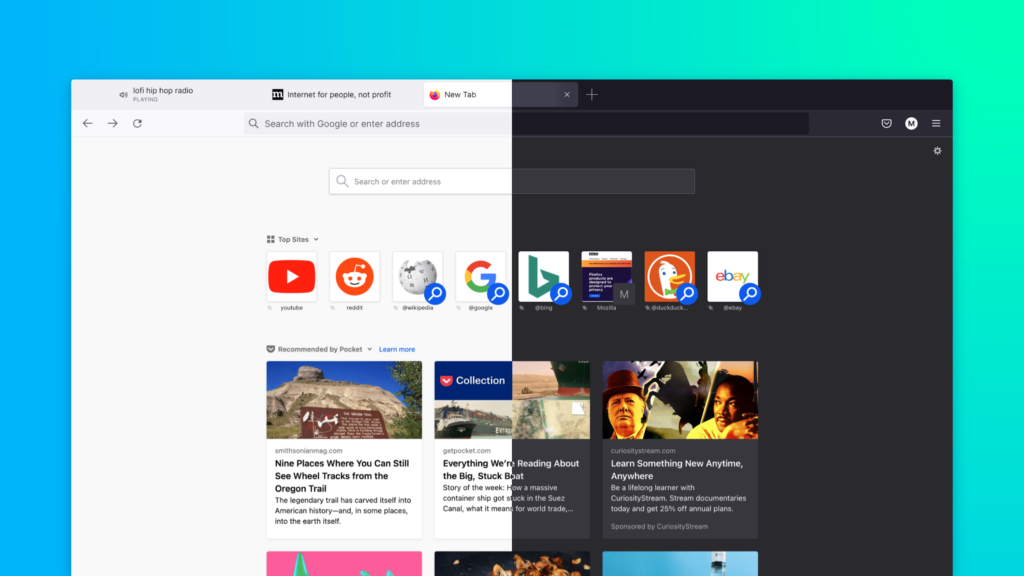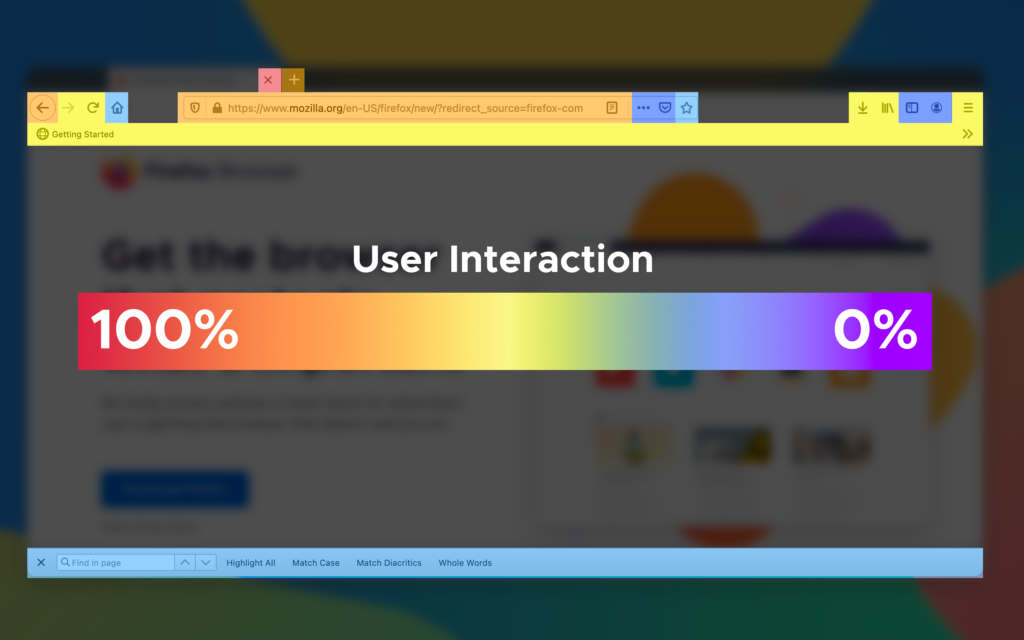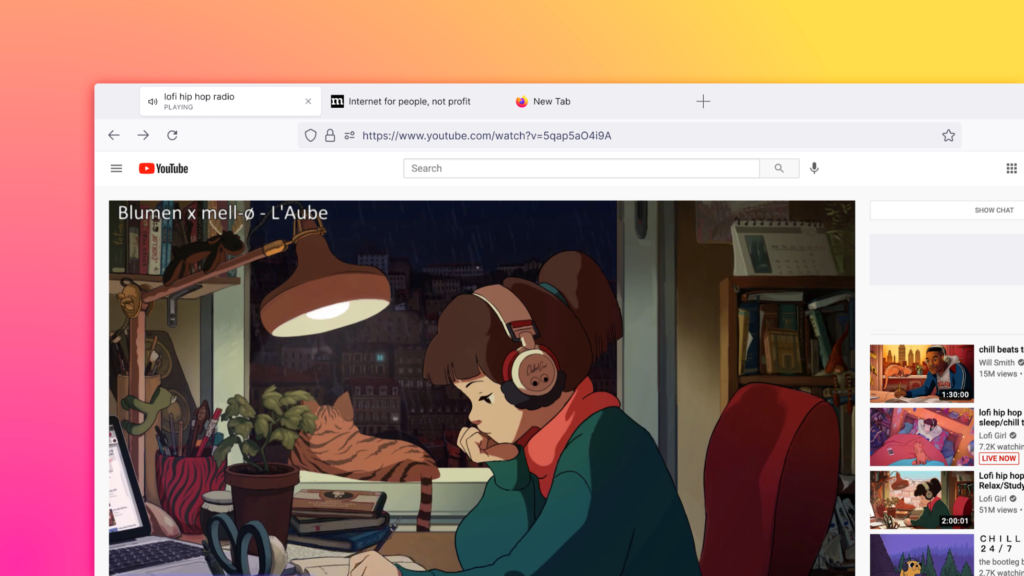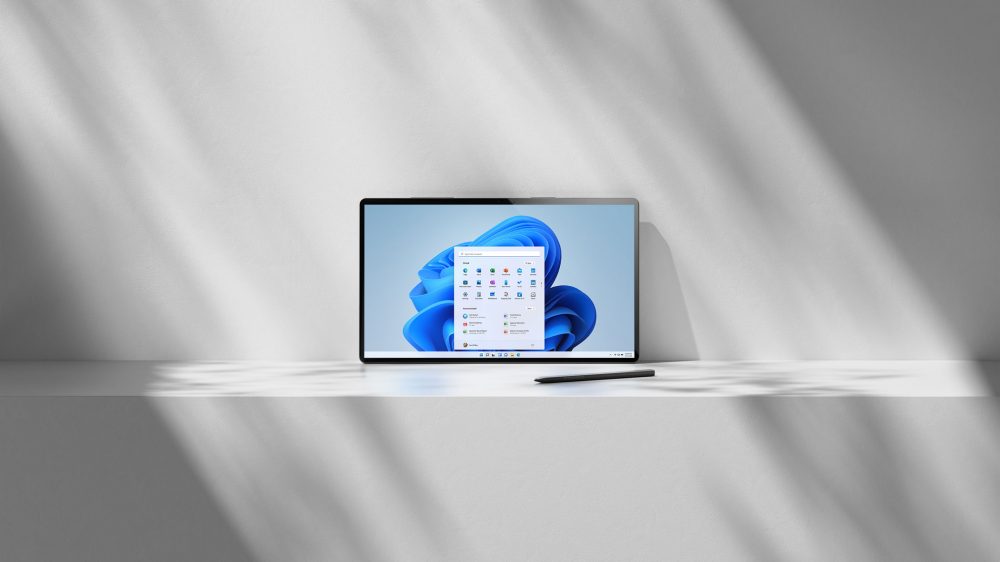Mozilla modernises Firefox UI with design overhaul, privacy protections
Developers claim the refreshed browser is cleaner, more intuitive, and responsive to users' browsing habits


Mozilla has "reimagined" the user interface (UI) of its Firefox browser by introducing a more intuitive aesthetic as well as functionality tweaks to improve the overall experience and attract more users to the privacy-oriented web browser.
Key to version 89's new look is a dramatic reduction in the number of prompts and notifications that demand users' attention, as well as actions on the menu bar.
Tab design, too, has been reworked so they float neatly alongside one another, while also being detached from the browser so users can move and rearrange them at will.
Alongside these aesthetic improvements, Mozilla has upped the ante on its privacy protections with the integration of a feature dubbed Total Cookie Protection in its private browsing mode. This tool was previously only available in Enhanced Tracking Protection (ETP) mode, and allows all users to block cookies from tracking them around the web by creating a separate 'cookie jar' for each site.
"We set out in 2021 to reimagine Firefox's design to be fast, modern, and inviting the first time you run it and every day after," said Mozilla's senior vice president for Firefox, Selena Deckelmann. "We've always had your back on privacy, and still do.
"Now with today's new Firefox release, we're also bringing you a modern new look designed to streamline and calm things down so you have a fresh new web experience every time you use Firefox."
Deckelmann added that the development team had set out to implement a swathe of minor and subtle changes to improve users' browser experience without making the overall change too obvious.
Get the ITPro daily newsletter
Sign up today and you will receive a free copy of our Future Focus 2025 report - the leading guidance on AI, cybersecurity and other IT challenges as per 700+ senior executives

Tweaks have also been made with browsing habits in mind, with the team analysing 17 billion clicks per month to determine which elements users were interacting with the most, and which were more or less redundant. This analysis also gave the team insights over varying browsing behaviour by country, with the UK being home to the most 'tab hoarders'.
Underpinning the new UI is web navigation, with fewer icons in and around the main address bar, and fewer prompts to distract the eye. Menus, too, are less cluttered with different kinds of settings, and give a clearer idea as to where different options will direct users.
The reworked tab design, meanwhile, aims to improve the user experience by adding new functionality, such as blocking autoplaying videos on newly-opened tabs unless users visit them first. They'll also convey information about what video is playing, or update you on details like when your next meeting is.

Finally, enabling Total Cookie Protection by default on Firefox's private browsing mode means each site that users visit will be isolated in terms of the cookies on their machine. Cookies can no longer be used to follow users from site to site and gather browsing data when using other services.
RELATED RESOURCE

Humanising customer experience through technology
How to win and maintain customer trust
This was first introduced in February for users who've enabled ETP, but it's now generally available for all using the private browsing mode. This is in addition to supercookie protections, automatic clearing of cookies and caches after each session, tracker blocking, fingerprinting script blocking, and SmartBlock. This latter feature intelligently fixes a web page that was previously broken when tracking scripts were blocked.
With Firefox 89, Mozilla has also rolled out a new refreshed UI for Firefox on iOS, with iPhone and iPad users also benefiting from a design functionality refresh. Among the tweaks made are reducing the steps to search in a new tab, emphasising the ability to do new quick searches, and changing the iconography and menu item naming to be more consistent with the desktop experience.

Keumars Afifi-Sabet is a writer and editor that specialises in public sector, cyber security, and cloud computing. He first joined ITPro as a staff writer in April 2018 and eventually became its Features Editor. Although a regular contributor to other tech sites in the past, these days you will find Keumars on LiveScience, where he runs its Technology section.
-
 Bigger salaries, more burnout: Is the CISO role in crisis?
Bigger salaries, more burnout: Is the CISO role in crisis?In-depth CISOs are more stressed than ever before – but why is this and what can be done?
By Kate O'Flaherty Published
-
 Cheap cyber crime kits can be bought on the dark web for less than $25
Cheap cyber crime kits can be bought on the dark web for less than $25News Research from NordVPN shows phishing kits are now widely available on the dark web and via messaging apps like Telegram, and are often selling for less than $25.
By Emma Woollacott Published
-
 Microsoft has been caught testing ads in the Windows 11 File Explorer
Microsoft has been caught testing ads in the Windows 11 File ExplorerNews Windows users threaten to make the switch to Linux after an Insider flagged new adverts in File Explorer
By Connor Jones Published
-
 Microsoft to roll out Windows 11 improvements next month
Microsoft to roll out Windows 11 improvements next monthNews Android on Windows public preview and task bar enhancements predate major release later in year
By Danny Bradbury Published
-
 Windows 11 rollout begins as industry predicts slow business uptake
Windows 11 rollout begins as industry predicts slow business uptakeNews Microsoft's long-awaited OS refresh is here, but analysts expect many will wait until next year to upgrade
By Sabina Weston Published
-
 The path to CX excellence
The path to CX excellenceWhitepaper Four stages to thrive in the experience economy
By ITPro Published
-
 Microsoft hints at “sweeping visual rejuvenation” of Windows
Microsoft hints at “sweeping visual rejuvenation” of WindowsNews The company is also said to be working on a new Outlook app to replace the built-in Mail and Calendar apps on Windows 10
By Bobby Hellard Published
-
 From customer experience to enterprise experience
From customer experience to enterprise experienceWhitepaper Six leading steps to activate your CX North Star
By ITPro Published
-
 Take command of your computer with a command line interface
Take command of your computer with a command line interfaceIn-depth A CLI might not look as good as a GUI, but it can pack a punch
By Rene Millman Last updated
-
 What is TypeScript?
What is TypeScript?In-depth Who created the JavaScript-compatible programming language, and what is it used for?
By Keumars Afifi-Sabet Published